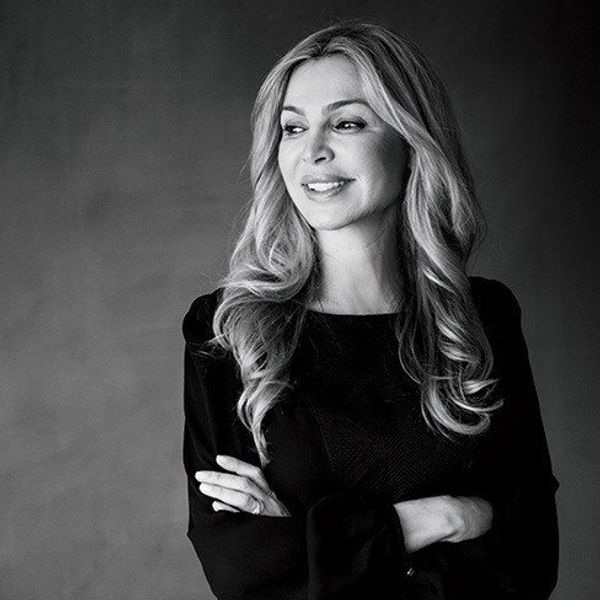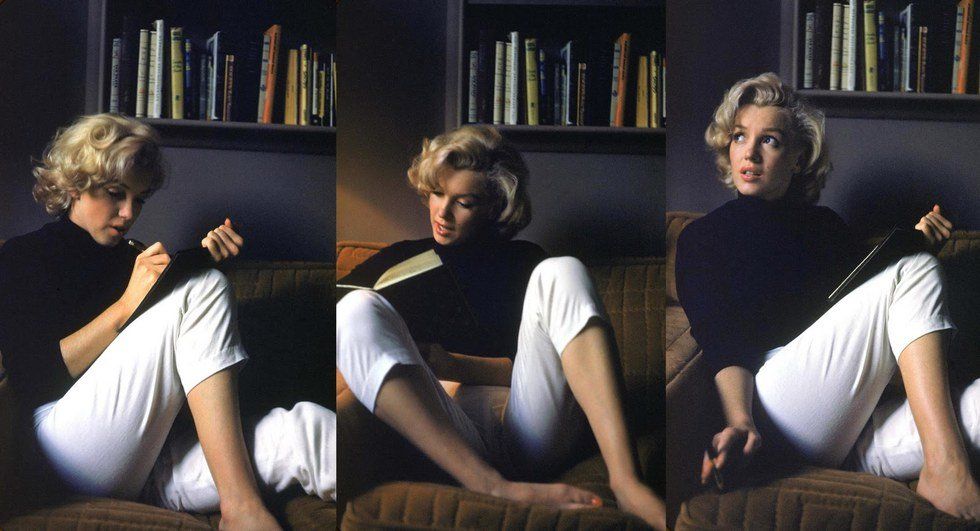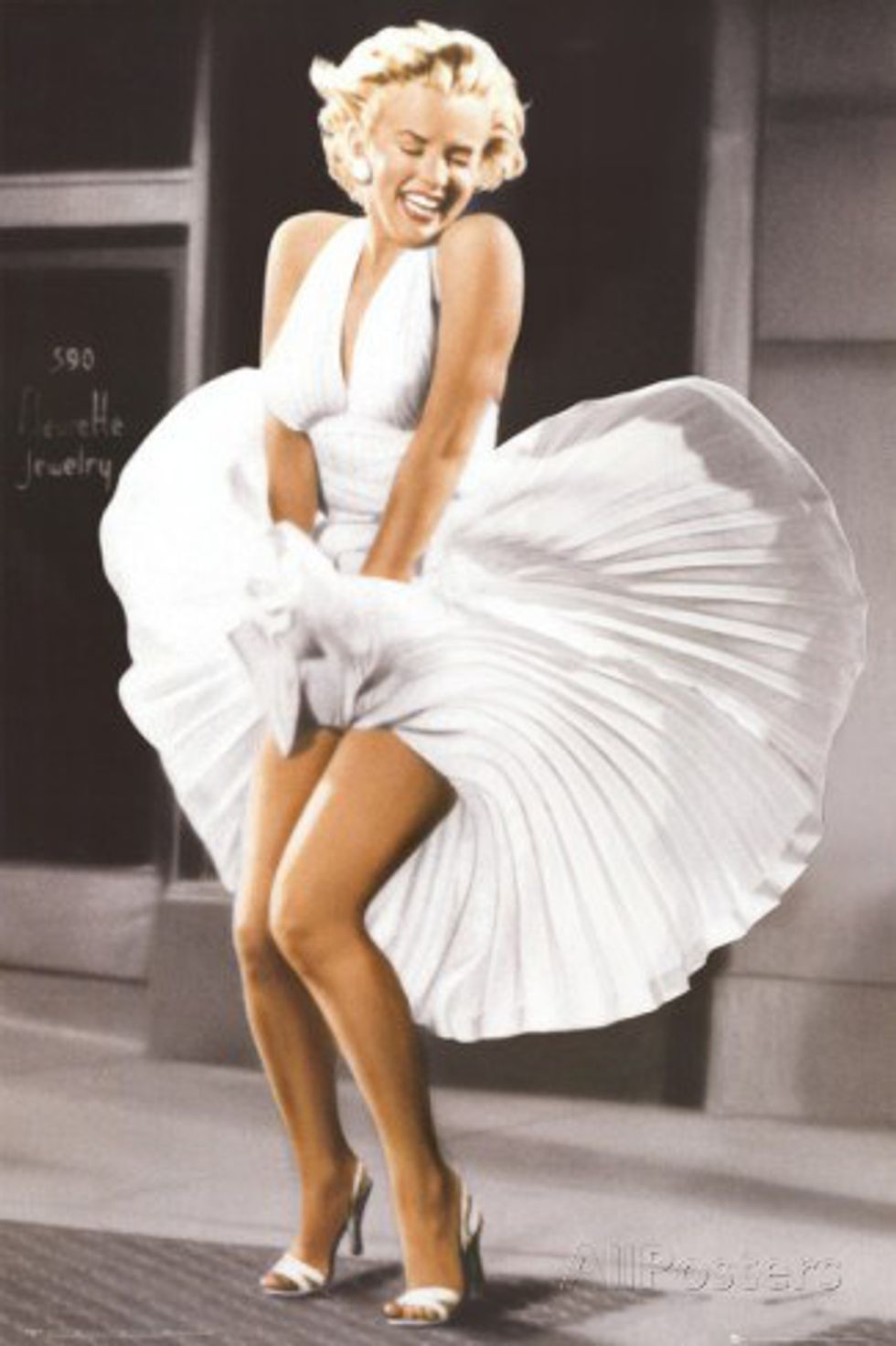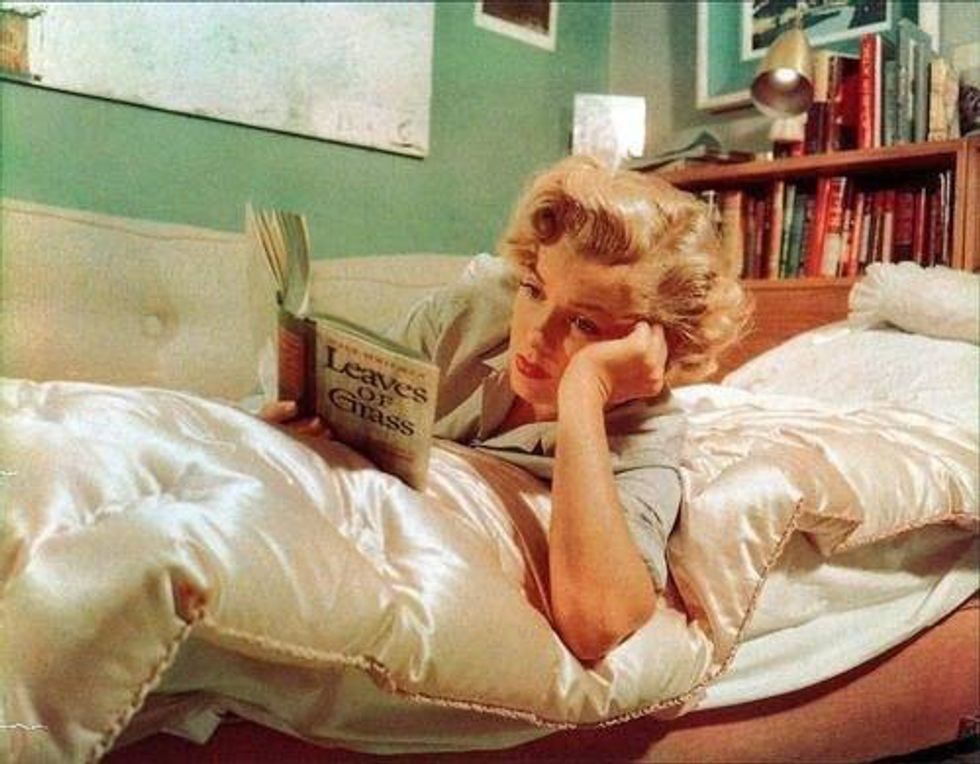Norma Jeane Mortenson died on August 5, 1962. But not many people know about that.
People seldom care about Norma Jeane, as they are too interested in Marilyn Monroe, which was the screen name she chose for herself when she was 20-years-old.
When the model and actress died, she left many things behind: an unparalleled legacy in American popular culture, countless heartbroken fans that hoped the front page news was nothing but a lie, conspiracy theories and over 400 books in her personal library. The last item in the list surprised the world when the news spread. After all, Monroe was famous for the dumb blonde roles she played in her blockbusters. Naive, beautiful and vulnerable, Marilyn Monroe was loved by everyone, but highly underestimated at the same time. No one would have expected her to be a bookworm.
Although the term, "dumb blonde," was coined around the 18th century, it wasn’t popularized until much later. Ever since the publication in 1925 of, “Gentlemen Prefer Blondes,” by Anita Loos, it's hard to shake the idea that blonde women are supposed to be bombshells and significantly less smart than brunettes. The novel became the second bestselling book the year after, paving the road for actresses like Marilyn Monroe, Jean Harlow and many others to make money by exploiting their sexuality and undermining their own intelligence. The book was published by a woman, and is plagued with intentional grammar and spelling errors in order to reinforce the stereotype. The sequel is called, “But Gentlemen Marry Brunettes.” Need I say more?
At some point, society decided that women weren't good enough to have both the looks and the brains; those two qualities were mutually exclusive and forced women to choose on which side they fit best. Even if Monroe wasn’t a natural blonde, the picture that will first come to mind when her name is brought up will most likely be one of her pin up photos, namely the iconic white dress.
The photographs of the actress reading James Joyce’s “Ulysses” in her spare time, or laying in her bed while reading Whitman’s (her favorite poet) “Leaves of Grass,” are not pictures that we see often, much less think about.
Years after her death, Marilyn Monroe continues to be a sex symbol, a blonde bombshell whose image was designed specifically to please male audiences. And because of this, it's unfathomable for most people to picture a growing library in her home. But isn’t it about time we stopped encouraging this stereotype?
Blonde girls do have more fun, but it comes at the price of being the punchline of every joke. Beautiful women, regardless of the color of their hair, are often reassured that it’s OK if math, science or studying in general isn’t their forte, because “at least they are pretty.” During the early years of school, young girls often score higher in science subjects, but their grades spiral down when their teenage years hit. The most probable cause is the reinforced idea that women have no place in those careers. But this has to change.
We have to stop forcing women -- and men, because they are no strangers to being typecast or stereotyped because of their looks -- to decide early in their lives to either be smart or pretty. We have to stop being surprised when a beautiful girl pulls out a thick book from her designer, bright pink, handbag. We need more Elle Woods, more Marilyn Monroes who prove to the world that people are allowed to be both beautiful and intelligent.
We need to urge society to stop sexualizing dumbness and naivety, as it gives the idea that it's okay to take advantage of a person just because they have a pleasing figure. We need to push young people into believing in themselves, and fighting to be more. That, in my opinion, is the true Challenge, with a capital C.
Of course, if you would like to compare your literary tastes with Marilyn Monroe's, you can always check out the list of books found in her library here.






















